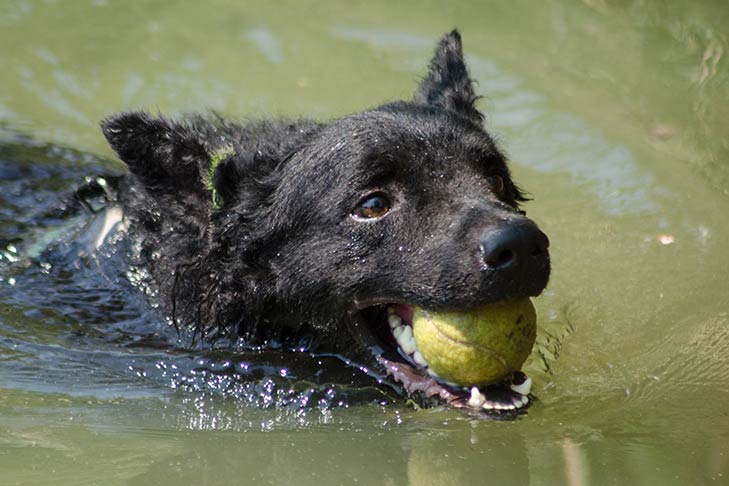Are dogs that swim in Canyon Lake getting sick from blue-green algae blooms?
According to area social media posts, yes.
According to Texas Parks and Wildlife Department (TPWD), no.
Deputy Communications Director Cory Chandler said TPWD is unaware of any algae blooms in Canyon Lake, although the agency does not conduct regular water-quality testing or monitoring of water bodies unless there are any reported fish and wildlife kills.
U.S. Army Corps of Engineers monitors Canyon Lake’s water quality and has not reported any algal blooms.
Just in Case
TPWD does advise people and their pets to avoid areas with visible cyanobacterial or algal concentrations or scum in the water or shore.
Chandler said lake-goers concerned about algal blooms should follow these World Health Organization safety guidelines:
- Avoid areas with visible cyanobacterial or algal concentrations and/or scums in the water as well as on the shore. Direct contact and swallowing appreciable amounts are associated with the greatest health risk.
- Where no scums are visible, but the water shows strong greenish discoloration and turbidity, test if you can still see your feet when standing knee-deep in the water (after wading in without stirring up sediment). If not, avoid bathing— or at least avoid ingestion of water, i.e., submersion of your head.
- In such situations, avoid water-skiing because of potentially substantial exposure to aerosol.
- If sailing, sailboarding or undertaking any other activity likely to involve accidental water immersion in the presence of cyanobacterial or algal blooms, wear clothing that is close-fitting in the openings. The use of wet suits for water sports may result in a greater risk of rashes, because cyanobacterial or algal material in the water trapped inside the wet suit will be in contact with the skin for long periods of time.
- After coming ashore, shower or wash yourself down to remove cyanobacterial or algal material.
For stock tanks, the Minnesota Pollution Control Agency offers an instruction sheet for simple, no-cost tests for blue green algae, At-home test kits are available for owners online.
For more information about dogs sickened by blue-green algae click here.




